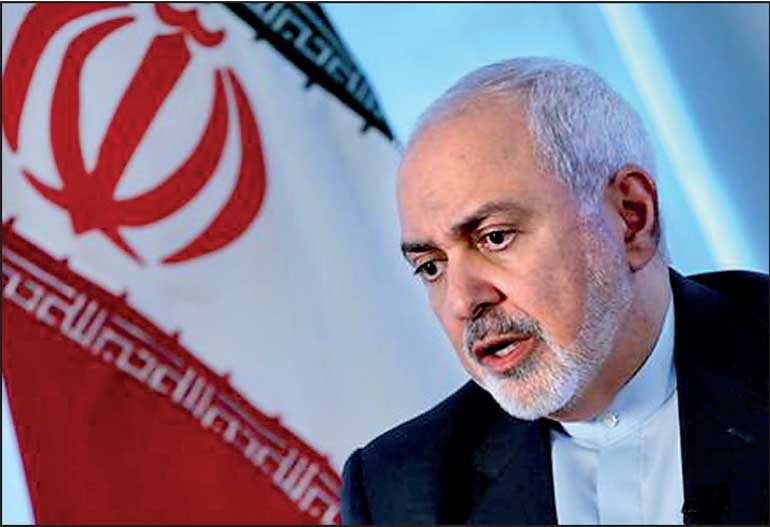Monday Feb 23, 2026
Monday Feb 23, 2026
Friday, 26 April 2019 00:00 - - {{hitsCtrl.values.hits}}

NEW YORK (Reuters): The United States must be prepared for consequences if it tries to stop Iran from selling oil and using the Strait of Hormuz, Iran’s Foreign Minister Mohammad Javad Zarif warned on Wednesday, while also offering to negotiate prisoner swaps with Washington.
The United States on Monday demanded buyers of Iranian oil stop purchases by May or face sanctions, ending six months of waivers which allowed Iran’s eight biggest buyers, most of them in Asia, to continue importing limited volumes.
“We believe that Iran will continue to sell its oil. We will continue to find buyers for our oil and we will continue to use the Strait of Hormuz as a safe transit passage for the sale of our oil,” Zarif told an event at the Asia Society in New York.
Reinforcing Supreme Leader Ayatollah Ali Khamenei’s stance, Zarif warned: “If the United States takes the crazy measure of trying to prevent us from doing that, then it should be prepared for the consequences.” He did not give specifics.
Oil prices hit their highest level since November on Tuesday after Washington’s announcement.
When asked if the US pressure campaign on Tehran was aimed at sparking further negotiations or regime change, Zarif said: “The B team wants regime change at the very least.” He described the B Team as including Israeli Prime Minister Benjamin Netanyahu and Trump’s national security adviser John Bolton.
“It is not a crisis yet, but it is a dangerous situation. Accidents ... are possible. I wouldn’t discount the B team plotting an accident anywhere in the region, particularly as we get closer to the election. We are not there yet,” Zarif said referring to the November 2020 vote for US president.
Zarif suggested possible cooperation with the United States to bring stability to Iraq and Afghanistan, a priority for both Tehran and Washington.
He also said he was willing to swap British-Iranian aid worker Nazanin Zaghari-Ratcliffe, who has been detained in Iran since 2016, for an Iranian woman detained in Australia for the past three years on a US extradition request.
“I feel sorry for them, and I have done my best to help,” Zarif said of Zaghari-Ratcliffe. “But nobody talks about this lady in Australia who gave birth to a child in prison. ... I put this offering on the table publicly now - exchange them.”
Later, in an interview with Reuters, Zarif backed off from a possible prisoner swap for the two women saying the Zaghari-Ratcliffe case was a separate issue, which he was discussing with the British government.
“The offer that I made was people who have been in prison either in the United States or elsewhere in the world on American request,” he said, “But the Iranian-British woman is a separate case.”
Zarif told Reuters he was proposing “a serious dialogue” with the United States on a possible prisoner swap.
At the Asia Society, Zarif said Iran proposed a possible prisoner swap deal to the US administration six months ago, but had not yet had a response from Washington.
“All these people that are in prison inside the United States, on extradition requests from the United States, we believe their charges are phony. The United States believes the charges against these people in Iran are phony. Let’s not discuss that,” he said.
“Let’s have an exchange. I’m ready to do it and I have authority to do it,” Zarif said.